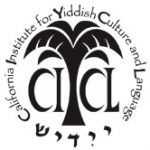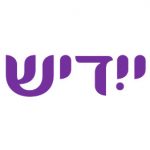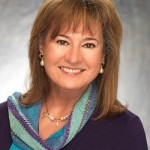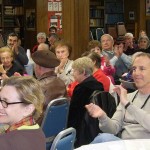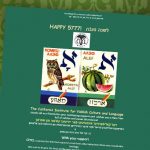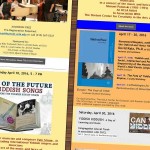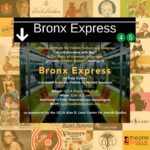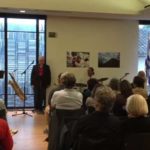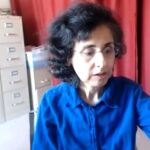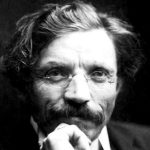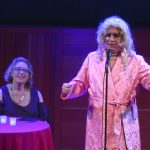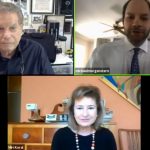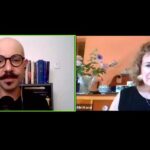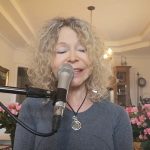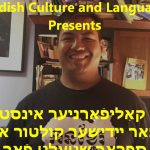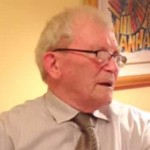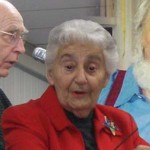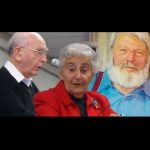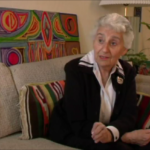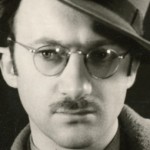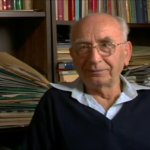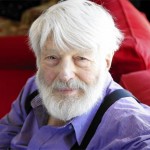Last Golden Links: Yiddish Treasures
די לעצטע גאָלדענע רונגען׃ ייִדישע אוצרות
There was a time when Yiddish music, stories, and humor filled the streets and homes of secular Jewish neighborhoods. Those days are gone forever. Yet the Yiddish voices, songs and music captured on sound recordings and in motion pictures (both film and video) are remembered fondly by those whose native language was Yiddish, as well as their descendants.
In 2004, the California Institute for Yiddish Culture and Language, with the support of the California Council on the Humanities and the Leibovitz and Yablon Foundations, undertook a very crucial and timely project: the video recording of the Yiddish oral histories of the individuals who were in the vanguard of preserving the last vestiges of active Yiddish cultural life in Los Angeles. The Last Golden Links Oral History Project captures the voices and cultural histories of ten individuals long active in Los Angeles, and even beyond. All were part of the great and irreplaceable 20th Century Yiddish Civilization, born in the major Jewish urban centers of Eastern Europe and the US prior to the Holocaust. They were all schooled from a young age in Yiddish, and were important teachers, writers, actors, activists, in the realm of Yiddish culture in Los Angeles and internationally.
Among our ten Last Golden Links interviewees are included: the world renowned entertainer Theo Bikel; Lilke Majzner, educator, writer and last Director of the LAYCC; Moshe Shklar, poet and last editor of the renowned Yiddish literary journal Kheshbn; Yakov Basner, beloved veteran Yiddish teacher at the Workmen’s Circle; and Sabell Bender, veteran Yiddish actress and authority on the Yiddish theater. Not only do their stories have import as records of a vanishing civilization, but the native language in which these interviews were conducted is at a high (literary) level that is already rarely encountered today and, tragically, will soon disappear entirely.
These recordings are precious also as teaching tools for students of Jewish history, Jewish culture, and most especially of Yiddish language.
As such the project has been timely because since the recordings were made nearly all of these elderly interviewees have passed away.
Over the course of approximately three hours they speak at depth about their early lives with Yiddish (home life and education); the role Yiddish played for them during the years of WW II and the Holocaust; the Post-War import of Yiddish in their lives and those of their children; and how they see the future of Yiddish.
CIYCL is dedicated to bringing you all of these amazing interviews, subtitled in English, as an on-line archive. We need additional funding to do so. Please consider contributing to this important project — either through funding, time, or donation of a recent, good-working-order Macbook Pro.
The end goal of the Last Golden Links Oral History project is three different versions of these histories to be placed in relevant educational cultural institutions, and/or to be available as an on-line archive for researchers and educators:
- A one-hour documentary which chronicles the cultural/linguistic significance of the combined histories of all ten subjects (with English subtitles and narration);
- An edited one-hour version of each of the interviews, with English subtitles;
- An unedited archive of all the interviews but with an English transcript for each, either as a separate document or as subtitles.




